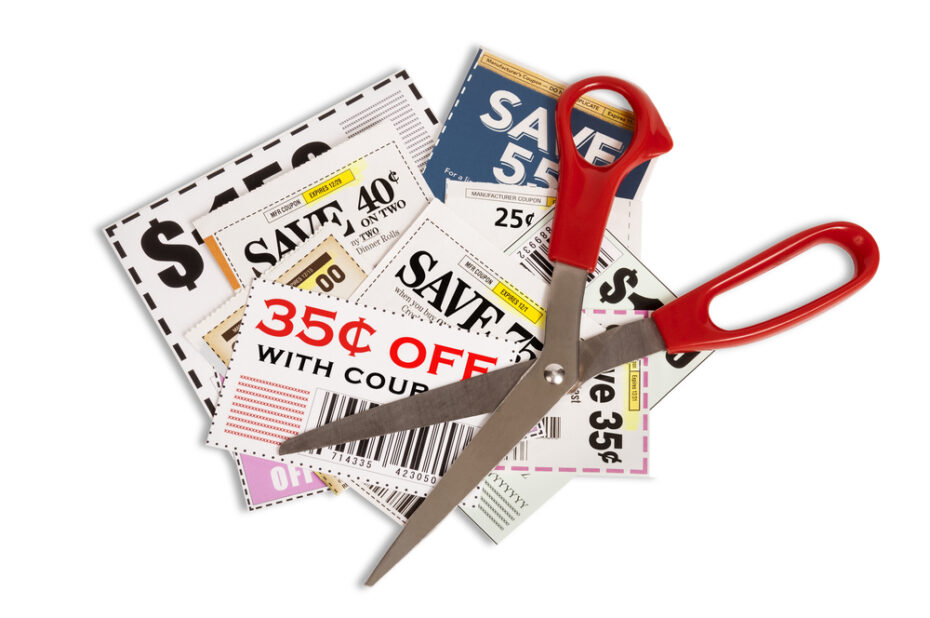16 Frugal Living Tips That Can Have A Big Impact On Your Finances

Did you know that an average American has about $38,000 in personal debt? It’s true. And these debts are a combination of personal loans, car loans, mortgages, student loans, and credit cards.
Living in debt can be both stressful and and we think that needs to stop! That is why we put together a list of frugal living tips that are completely painless to try. If anything, these tips will bring even more joy to your life. So if you want to improve your financial situation, now is the time to evaluate your lifestyle.
By living frugally, not only will you teach yourself the virtues of discipline and perseverance but it could also be a road to get out of debt and save more money.
What Does Being Frugal Really Mean?
When you look up the meaning of frugal in the Merriam dictionary, you see things like “unwilling to (lavishly) enjoy the fruits of their labors” and “using money or supplies in a very careful way” come up. No wonder some people have given this word a negative connotation. Frugal living could mean something different for everyone. For some, it might be buying unbranded clothes rather than spending your entire paycheck on a signature dress. For others, it might be finding the right opportunity to make a purchase and not paying a premium for an item them want. Others may find the fun in negotiating to get the best deal they can. There is really no exact definition of how to live frugally.
Pros and Cons of Frugal Living
Living a frugal lifestyle obviously comes with its share of benefits and downfalls. But if you’re doing this lifestyle correctly, the advantages definitely outweigh the disadvantages. Let’s take a look at the pros and cons of frugality.
Pros:
- You place value on purchases. All purchases that you are making add value to your life.
- Thanks to frugal living, you get to create and follow a sound budget. Budgeting is the basic foundation of every financial routine.
- It helps you achieve financial freedom. By living stingy, you tighten your belt and save money to get out of debts.
- You develop a habit of saving.
- It helps you invest in your future (investment accounts, retirement investment, savings)
Cons:
- You might get misunderstood, especially if your financial decisions involve family and friends.
- Possibly missing out on social gatherings such as watching a movie, dining in a restaurant, etc.
- You may also buy products that fall short on quality.
- When taken too far, living frugally could lead to missed opportunities and self-denial.
16 Best Frugal Living Tips To Help Achieve Your Financial Goals

Set Up a Financial Plan
The first step to take on your road to living life more frugally is creating a financial plan. Setting a long-term financial plan can help you focus on your short-term goals and reach your long-term goals. It will serve as a guide on how to determine your financial steps. Financial planning is not one-size-fits-all. It varies from individual to individual. Understanding what you want plays an important role in creating a financial plan. Where do you want to be in five years? Do you want to own a house, or maybe purchase a new car? How do you imagine your life in retirement? These questions can help you determine your goal and create a solid financial plan.
Create a Budget and Stick to It
Have you also experience moments when you’re wondering where all your money goes? Money, without a purpose, fly to unknown destinations. Before you know it, your entire paycheck is gone aimlessly. The best way to beat this mindless spending is creating a budget. A solid budget plan is a foundation of every great financial plan. Regardless if you’re trying to save for your dream vacation or pay off debts, creating a budget is critical to make your financial goals come true. Creating a budget is important, so does sticking to it.
Evaluate Your Daily Spending Habits
Americans are one of the biggest shoppers in the world. We purchase unnecessary items all the time, not because we need them, but because we believe that they will make us feel good. This approach to buying will put us financial debt and stress. To stay on track of your spending habits, you can use apps such as Personal Capital, Clarity Money, Wally, Mint, and PocketGuard. These apps are great for budgeting and tracking, especially if you’re not a fan of keeping every receipt. You can also look for a budget buddy or hire a financial advisor if you find it hard to keep track of your spending habits.
Cancel Unnecessary Subscriptions
Subscriptions have become a part of our life – from gym membership, video streaming subscription, music subscriptions, magazines to cell phone service. Stay on top of your subscriptions and save money by canceling those that you rarely use. Apps like Truebill can help you track your subscriptions. They will also send a notification if there’s an increase in your monthly subscription fee. More importantly, these apps can help you cancel unnecessary subscriptions.
Get Rid of Junk and Monetize Them
Junk don’t just take so much physical space but they also add to our stress. Do yourself a favor and get rid of all the things that you are no longer using. If you haven’t used it in the past year, then you’re probably never going to use it again. Instead of holding on to these things that occupy 50% of your closet, let them go and sell them instead. Your closet will not only be 50% more spacious, but you have also found a way of earning a few dollars. Keep in mind that your junk is not serving any purpose, except taking up so much space in your house. It’s a liberating experience to let go of these things. And making money while doing this process isn’t bad at all.
Utilize on Saving Apps
It’s always a good thing to save more money. The extra money that you tuck away can be used in more important things. But it’s sometimes challenging to save when you’re living paycheck to paycheck. Thankfully, there are tons of apps that you can use not just to track your expenses but to help you save a few dollars. Acorns is our favorite to start saving money: Acorns rounds up your every purchase and automatically save the difference to your Acorns account.
Think Twice Before Spending Any Money
Retailers and manufacturers always find ways to appeal to the hoarder in each of us. When we see a huge discount sign, we’re too quick to purchase the item on sale when we don’t really need them. Don’t fall into retailers’ tricks. Before you put an item in your shopping cart, take a step back and analyze if it’s a need or a want. Purchased items that are not necessarily needed will either go to waste or would just occupy the extra space in your house.
Take Advantage of Coupons and Grocery Deals

You won’t be called a pro at living stingy unless you master the art of using discounts and coupons. The average American family spends between $500 and $1,100 on clothes, cleaning products, toiletries, and groceries every month. By using discounts and coupons, you can reduce some of these costs without sacrificing your hygiene and good nutrition. Here are some ways of saving money by using discounts and codes:
- Use Groupon to save on everything from experiences to dining.
- Some manufacturers reward their loyal customers. Create a list of your favorite brands and send them an email expressing your love and gratitude for their products. Some manufacturers would email you back with coupons as your loyalty reward.
- Sign up for loyalty programs and accumulate your reward points earned for every purchase. Additionally, you can earn extra cash on your purchases by becoming a member of cash back websites such as BeFrugal or Ebates.
Buy in Bulk
Buying household products and food in bulk, through BJs Wholesale Club or Costco, is probably one of the most popular frugal strategies. A lot of people practice this because they save a lot of money when they buy a certain item in large quantities. When you buy an item in bulk, it becomes cheaper per unit. The difference may be small but it could add up to a bigger amount, especially if you’re using the product often. The 10 cents that you save on buying a larger shampoo could turn into a $36.50 savings in a year.
Sign Up on Cash Back Websites
Cash back websites help you earn money in every purchase. All you need to do is sign up, click on a special offer or link before you make your purchase and earn cash back while you shop. If you are regularly shopping online, you might as well shop wisely and utilize these cash back websites to earn cash back rewards. You may be spending money on your purchase, but you earn back a portion of that money. It’s a smart way of getting more out of your buying experience.
Pack Your Lunch
Do you want to cut your daily expenses? One way of doing so is by packing your lunch. Now, you may be thinking that eating out when at work may not be too much. Though the cost may vary – you can either spend $5 on a sandwich or $20 at a restaurant – the cost adds up. Americans spend an average of $3000 a year on lunches. You may still spend money when you bring your own lunch at work, but you will definitely save some money. If you’re planning your lunch meals carefully, you can potentially save at least $100 a month.
Cook Your Own Meals
Here’s a shocking fact: Americans spend a whopping $70,000 on delivery and takeout in their lifetime. If you’re living stingy, you certainly would like to avoid drive thru’s and eating out in restaurants. Cooking your own meals can help you cut down your expenses. Plus, it benefits your health too! A home-cooked Chicken Fajita Salad is definitely healthier than a double cheeseburger takeout.
Consider Downsizing Your House

The saying “bigger is better” does not apply to everything. Sometimes, smaller might be better. This could be especially true for houses. If you’re working too hard just to keep up with your mortgage, perhaps it’s time to give downsizing your home a thought. First, you save more money if you’re spending less on your mortgage payment. You can allocate this increased cash flow to other needs or investments. Second, you save time cleaning and maintaining your home. When you downsize your home wisely, you also minimize your stress and responsibility.
Use Your Time Diligently
Internet users spend an average of 2 hours and 22 minutes on social media and messaging platforms every day. That’s more than 800 hours of time go to waste every year. Living frugal does not just apply to how you use your finances. It is also applicable to how you utilize your time. Time is money and when used diligently, it can increase your productivity. As a result, your savings account could improve when you accomplish more things.
Look for a Side-Hustle
Are you tightening your belt too much but you still feel that it’s not enough to make ends meet? Looking for a side hustle might be the perfect solution for this dilemma. A side hustle does not necessarily require too much of your time, yet it can help you earn extra bucks. It can even be a medium to work on your interest and passion without having to commit your full-time. Some people have even become so successful in their side hustle that it paved the way to making more money.
Renegotiate Your Services
We all need certain services to run our lives. Some of us have need car insurance, home insurance, life insurance, AAA memberships, house cleaner, dog walker, furnace cleaning, etc. And often times, once we find those services we tend to keep them for a long time. One of the best places to be more frugal with your money is to look at these services and renegotiate them or find alternatives. Billshark is one of our favorite apps that can help you reduce your home and auto insurance payments.
Frugal Living: Is It Really Worth It?
In short, yes! And we hope by reading all of the frugal living tips, you think it is definitely worth it as well. Especially if your goal is to get out of debt and become more financially secure. Remember, living this way is not equivalent to living cheap. It doesn’t deprive you of your needs. It’s becoming conscious on all of your purchases and making sure that everything that you own carries value and purpose in your life. Once you have adopted to this kind of spending lifestyle, saving money and increasing your financial maturity will follow.